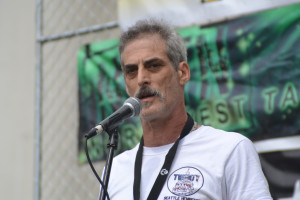
On this week's edition of Free Culture Radio our guest is Michael Krawitz from Veterans for Medical Cannabis Access.
More and more countries around the world are setting up medical cannabis programs. Most states in the US have some form of medical cannabis program or other. Even Oklahoma has medical cannabis these days.
The problem, the reason that these states have had to set up their own medical cannabis programs, is that the marijuana plant is listed in Schedule One of the Controlled Substances Act of 1970.
That Act was essentially created in order to fulfill an international treaty obligation that the US had because of the UN’s 1961 Single Convention on Narcotic Drugs.
The scheduling of marijuana has become more of a controversial issue these days partly from the proliferation of medical cannabis programs but more from the growing interest in adult social use legalization.
Currently, the marijuana plant and marijuana resin are listed in the 1961 Single Convention’s Schedule One and Schedule Four. The Single Convention’s Schedule One is different from the US schedules. That schedule simply means that the substance is considered dangerous and should be tightly restricted. The UN’s Schedule Four lists substances that are banned. All substances that are listed in the UN’s Schedule Four are also listed in the UN’s Schedule One. In the US system, substances in our Schedule One – like marijuana and heroin – are banned.
A couple of years ago, the World Health Organization was tasked with evaluating the scientific and medical evidence on the marijuana. Such a review had never been done before, which raises the question of how the scheduling of marijuana can be justified.
The WHO Expert Committee on Drug Dependence was also tasked with making recommendations on the scheduling. One of its recommendations was that the UN’s Commission on Narcotic Drugs should take the marijuana plant out of its Schedule Four so it would no longer have to be banned. They also recommended leaving it in Schedule One, so it would still be tightly restricted.
On today’s edition of Free Culture Radio we speak with Michael Krawitz, an advocate who’s been working with the WHO and with the UN Commission on Narcotic Drugs in Vienna to move this review, and the scheduling recommendations, forward.
- KBOO



